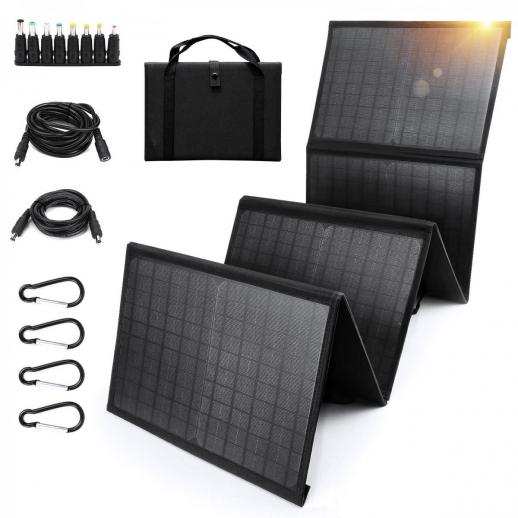How To Get Solar Panels For Free?
In recent years, the push for renewable energy sources has gained significant momentum, with solar energy being at the forefront of this movement. Solar panels offer a sustainable way to generate electricity, reduce carbon footprints, and lower energy bills. However, the initial cost of purchasing and installing solar panels can be a significant barrier for many homeowners. Fortunately, there are several ways to obtain solar panels for free or at a significantly reduced cost. This article will explore various methods to achieve this, providing practical solutions and insights for those interested in harnessing solar energy without breaking the bank.

Government Incentives and Rebates
One of the most common ways to get solar panels for free is through government incentives and rebates. Many countries and states offer financial incentives to encourage the adoption of renewable energy. These incentives can come in the form of tax credits, rebates, or grants.
Federal Tax Credits
In the United States, the federal government offers the Investment Tax Credit (ITC), which allows homeowners to deduct a significant percentage of the cost of installing a solar energy system from their federal taxes. As of 2023, the ITC offers a 26% tax credit for systems installed before the end of the year. This percentage is set to decrease in the coming years, so it's advisable to act quickly to maximize savings.
State and Local Incentives
In addition to federal incentives, many states and local governments offer their own programs to promote solar energy. These can include additional tax credits, rebates, and even grants. For example, California's Solar Initiative offers rebates to homeowners who install solar panels, significantly reducing the upfront cost. It's essential to research the specific incentives available in your area, as they can vary widely.
Solar Leasing Programs
Another popular method to obtain solar panels for free is through solar leasing programs. In these arrangements, a solar company installs the panels on your property at no upfront cost. Instead, you agree to pay a monthly fee to lease the equipment. This fee is often lower than your current electricity bill, resulting in immediate savings.
Power Purchase Agreements (PPAs)
A Power Purchase Agreement (PPA) is a type of solar leasing program where the homeowner agrees to purchase the electricity generated by the solar panels at a predetermined rate, which is typically lower than the local utility rate. The solar company owns and maintains the panels, so there are no maintenance costs for the homeowner. PPAs can be an excellent option for those who want to go solar without any initial investment.
Community Solar Programs
Community solar programs, also known as solar gardens or shared solar, allow multiple participants to benefit from a single solar array. These programs are ideal for those who cannot install solar panels on their property due to space limitations, shading issues, or other constraints.
Subscription-Based Models
In a subscription-based community solar program, participants subscribe to a portion of the energy produced by the solar array. They receive credits on their electricity bill for the energy generated, which can result in significant savings. Some programs require an upfront payment, while others operate on a monthly subscription basis.
Cooperative Models
Cooperative community solar programs involve a group of individuals pooling their resources to fund the installation of a solar array. Participants share the costs and benefits, making it a more affordable option for everyone involved. These cooperatives often receive additional support from local governments or non-profit organizations, further reducing costs.
Non-Profit Organizations and Grants
Several non-profit organizations and foundations offer grants and assistance programs to help low-income households and communities access solar energy. These programs aim to promote energy equity and ensure that the benefits of renewable energy are accessible to all.
GRID Alternatives
GRID Alternatives is a non-profit organization that provides free solar installations to low-income families. They work with volunteers and job trainees to install the systems, reducing labor costs and providing valuable workforce training. Homeowners who qualify for the program can receive a solar system at no cost, significantly reducing their energy bills.
Rural Energy for America Program (REAP)
The Rural Energy for America Program (REAP) offers grants and loan guarantees to agricultural producers and rural small businesses for renewable energy systems, including solar panels. While this program is not specifically for residential use, it can benefit those in rural areas looking to reduce their energy costs through solar power.
Solarize Campaigns
Solarize campaigns are community-based initiatives that bring together groups of homeowners to purchase solar panels in bulk. By pooling their purchasing power, participants can negotiate lower prices with solar installers, reducing the overall cost of the system.
How Solarize Campaigns Work
A Solarize campaign typically starts with a group of community members or a local organization organizing the effort. They solicit bids from solar installers and select a preferred provider based on price, quality, and experience. Homeowners then sign up to participate in the campaign, benefiting from the negotiated group rate. Some campaigns also offer financing options or additional incentives to further reduce costs.
While the initial cost of solar panels can be a significant barrier, there are numerous ways to obtain them for free or at a reduced cost. Government incentives, solar leasing programs, community solar initiatives, non-profit organizations, and Solarize campaigns all offer viable pathways to make solar energy more accessible and affordable. By exploring these options, homeowners can take advantage of the financial and environmental benefits of solar power without the burden of high upfront costs.
As the push for renewable energy continues to grow, it's essential to stay informed about the various programs and incentives available. By taking advantage of these opportunities, you can contribute to a more sustainable future while enjoying the economic benefits of solar energy. Whether through government programs, community initiatives, or non-profit organizations, there are numerous ways to make solar power a reality for your home.
